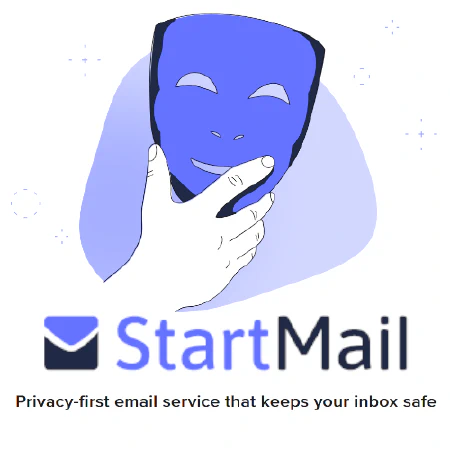Common VPN Mistakes and How You’re Accidentally Leaking Your Public IP

Table of Contents
Common Mistakes with Using VPNs, and How You Can Accidentally Leak Your Public IP While Using One
Virtual Private Networks (VPNs) are used by millions of people worldwide as a way to protect their online privacy and security. However, even with the best intentions, it is easy to make mistakes that can result in accidentally leaking your public IP address while using a VPN. In this article, we will discuss common mistakes with using VPNs and how to avoid them.
What is a VPN?
A VPN is a service that allows you to create a secure and private connection between your device and the internet. It works by routing your internet traffic through a server located in a different location than your own, thus making it appear as though you are connecting to the internet from that server location rather than your own.
Common Mistakes with Using VPNs
Not Checking for IP Leaks
One of the most common mistakes with using a VPN is not checking for IP leaks. When you connect to a VPN, your internet traffic is supposed to be routed through the VPN server and your IP address is supposed to be hidden. However, if your VPN connection is not configured correctly or if your VPN provider has a vulnerability, your IP address can leak, which defeats the purpose of using a VPN in the first place.
To check if your VPN is leaking your IP address, you can use a website like ipleak.net . This website will show you your public IP address and whether it is different from the IP address of the VPN server you are connected to. If your IP address is different, your VPN is working correctly. If your IP address is the same, your VPN is leaking your IP address.
Not Choosing a Secure VPN Provider
Another common mistake with using a VPN is not choosing a secure VPN provider. There are many VPN providers available, but not all of them are trustworthy. Some VPN providers may log your internet traffic or sell your data to third parties. Others may have vulnerabilities that could allow hackers to access your information.
To choose a secure VPN provider, look for one that has a strict no-logging policy, uses strong encryption, and has a proven track record of protecting user privacy. You can find reviews of VPN providers online, such as the providers recommended by simeononsecurity.com , to help you make an informed decision.
Using Free VPNs
Using a free VPN is another common mistake with using VPNs. While free VPNs may seem like a good option, they often come with limitations that can compromise your security and privacy. Free VPNs may log your internet traffic, sell your data to third parties, or limit your bandwidth and speed.
If you want to use a VPN, it is recommended to pay for a reputable VPN service. This way, you can ensure that your data is not being sold or logged, and you can enjoy fast and reliable internet speeds.
Not Updating Your VPN Software
Not updating your VPN software is another common mistake with using VPNs. VPN providers release updates to their software to address vulnerabilities and improve performance. If you are using an outdated version of your VPN software, you may be vulnerable to security risks and performance issues.
To avoid this mistake, make sure to update your VPN software regularly. Most VPN providers will notify you when an update is available, or you can check for updates manually.
How to Avoid Accidentally Leaking Your Public IP While Using a VPN
Use a Kill Switch
A kill switch is a feature that will automatically disconnect your internet connection if your VPN connection drops. This will prevent your IP address from being exposed if your VPN connection fails.
Many VPN providers offer a kill switch feature, so make sure to enable it if it is available.
### Disable WebRTC
WebRTC is a technology used by web browsers to enable real-time communication, such as video conferencing and file sharing. However, WebRTC can also be used to leak your real IP address, even if you are using a VPN.
To disable WebRTC in your web browser, you can install an extension like WebRTC Control for Chrome or Disable WebRTC for Firefox.
Use a Private DNS Server
When you connect to a website, your device sends a request to a DNS (Domain Name System) server to translate the website’s domain name into an IP address. By default, your device will use your internet service provider’s (ISP) DNS server, which can log your internet activity.
To avoid this, you can use a private DNS server that does not log your activity. Some VPN providers offer their own private DNS servers, or you can use a third-party service like Cloudflare DNS or Google DNS .
Use Two-Factor Authentication
Using two-factor authentication can help protect your VPN account from unauthorized access. Two-factor authentication requires you to provide two forms of identification to access your account, such as a password and a code sent to your phone.
Many VPN providers offer two-factor authentication as an option, so make sure to enable it if it is available.
Conclusion
VPNs are a great way to protect your online privacy and security, but they are not foolproof. Common mistakes like not checking for IP leaks, using an insecure VPN provider, using free VPNs, and not updating your VPN software can compromise your security and privacy. To avoid accidentally leaking your public IP while using a VPN, use a kill switch, disable WebRTC, use a private DNS server, and use two-factor authentication.
Always do your research and choose a reputable VPN provider that has a proven track record of protecting user privacy. By following these tips, you can enjoy a secure and private online experience.
References
- simeononsecurity.com’s VPN Provider Recommendations
- simeononsecurity.com - A Guide to Multi-Factor Authentication: Types and Best Practices
- IPLeak.net
- WebRTC Control Extension for Chrome
- Disable WebRTC Extension for Firefox
- Cloudflare DNS
- Google DNS






